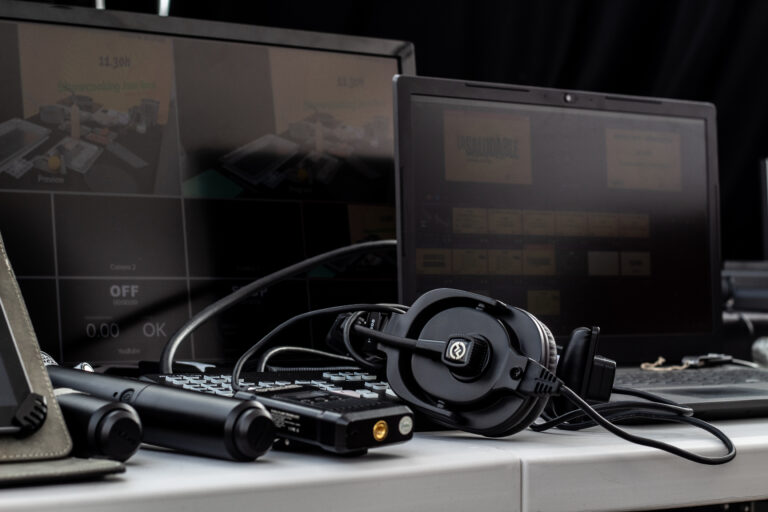Embarking on your first business trip is an exciting opportunity—but it can also be a bit overwhelming. From organizing your transportation to packing the essentials, careful planning is essential to stay stress-free and focused on your goals. Whether you’re traveling for a meeting, conference, or site visit, knowing what to prepare ensures you make the most of both your time and resources. In this guide, we’ll walk you through the process with practical tips to help you travel confidently, even if it’s your first time.
Understanding Your Travel Goals
Before anything else, it’s crucial to understand the purpose of your business trip. Business travel isn’t just about getting from point A to point B—it’s about maximizing the value of your time and resources. Setting clear objectives will help you prioritize tasks and focus on what truly matters during your trip.
Identifying Key Objectives
Ask yourself: What’s the primary purpose of your business trip? Whether it involves meetings, networking, or presentations, defining your goals ensures you allocate your time effectively. Here’s how to begin:
- Clarify Meeting Goals: Are you negotiating a deal, aligning project expectations, or building client relationships? Focus on specific outcomes.
- Plan for Networking Opportunities: If attending an industry conference, identify key people or companies to connect with beforehand. Utilize tools like LinkedIn to schedule coffee chats or informal meet-ups.
- Explore Additional Activities: Will there be site visits, product launches, or workshops? Make sure to list everything important for your trip.
Knowing your objectives will help you create a focused schedule that aligns with your priorities, maximizing both productivity and opportunities while minimizing overwhelm.
Assessing Necessary Resources
A successful business trip often boils down to preparation. Your resources—such as technology and travel documents—are the tools you need to accomplish your goals. Here are some essentials to consider:
- Technology Essentials: Don’t forget your laptop, smartphone, and portable chargers. If traveling internationally, pack the necessary adapters.
- Presentation Materials: Prepare slides, handouts, or brochures in advance. Always have digital backups just in case.
- Travel Documents: Double-check that you have passports, visas, tickets, and hotel confirmations. Keep both digital and printed copies to avoid issues.
- Expense Tools: Apps like Expensify can help you track receipts and stay organized with reporting.
By addressing these resources ahead of time, you’ll be able to focus entirely on your business goals without any last-minute chaos.
Creating a Detailed Itinerary
A well-planned itinerary is essential to ensure a smooth and productive trip. A detailed schedule helps keep you organized, reduces stress, and makes the most of your time on the road.
Scheduling Meetings and Appointments
Carefully scheduling meetings can make or break the effectiveness of your trip. Here’s how to streamline this process:
- Reach Out Early: Contact clients or colleagues well in advance. Propose a few time options to show flexibility while keeping control of your schedule.
- Use Scheduling Tools: Tools like Calendly or Google Calendar allow participants to book meetings based on their availability, saving you time and avoiding email back-and-forth.
- Cluster Meetings Geographically: If you’re having in-person meetings, group them by proximity to minimize travel time and maximize productivity.
- Account for Time Zones: Use apps like World Time Buddy to avoid confusion when scheduling international meetings.
- Send Confirmation Emails: A friendly reminder a day or two before the meeting ensures everyone is aligned. Include location, time, and any required prep work.
Including Travel Logistics
Your itinerary should seamlessly integrate all travel-related details to save time and minimize confusion. Consider the following:
- Flight Details: Note flight numbers, departure/arrival times, terminal information, and baggage allowances to avoid confusion.
- Accommodation Info: Include hotel name, address, check-in/check-out times, and reservation confirmation numbers.
- Local Transportation: List transportation options like rental cars, ride-share apps, or public transit routes.
- Coordinate Arrival Times: Arrive early to settle in, adjust to time zones, or rehearse presentations.
- Backup Everything Digitally: Use apps like TripIt to organize all your travel bookings in one place and keep printed copies of tickets as backups.
If you’re traveling to multiple destinations, ensure your itinerary flows logically to avoid unnecessary travel time and confusion.
Packing Smart for Business Travel
Packing efficiently for a business trip is all about preparation. The goal is to pack light while making sure you have everything you need. Choose luggage that suits the purpose and length of your trip and pack smart to keep yourself ready for any scenario.
Choosing the Right Luggage
Your luggage should be functional and professional. Here are some tips for selecting the right bag:
- Carry-On Simplicity: If possible, stick to a carry-on to avoid delays and baggage fees. Opt for a roller suitcase with durable wheels and a sturdy handle.
- Multi-Compartment Backpacks or Briefcases: For shorter trips, or as a complement to your carry-on, a compact and organized backpack can hold devices, documents, and essentials.
- Expandable Options: For trips where you’ll gather materials or do some shopping, look for expandable luggage.
- Material Considerations: Choose lightweight, durable materials like polycarbonate or ballistic nylon for maximum strength and minimal weight.
Essential Items to Bring
Here’s a list of must-have items for your business trip:
- Travel Documents: Passport, ID, boarding passes, hotel reservations, and meeting confirmations—both digital and printed copies.
- Electronics: Laptop, phone, chargers, and adapters (universal power converters for international travel).
- Business Attire: Versatile clothing that works for both meetings and after-hours events—think wrinkle-free fabrics.
- Comfortable Shoes: One pair of formal shoes and one pair of comfortable walking shoes.
- Toiletries: Keep it simple with travel-sized essentials like deodorant, toothpaste, and TSA-approved liquids.
- Extras for Emergencies: A portable power bank, basic medications, and a compact umbrella.
- Stationery and Notes: A notebook, pen, and backup copies of documents for meetings or presentations.
Managing Your Budget
Mindful budgeting is key to avoiding unnecessary stress or unexpected expenses during your trip. Here are some tips to help manage your costs:
Understanding Company Policies
Before booking, familiarize yourself with your company’s travel policies. These guidelines can prevent over-spending and streamline reimbursements. Policies typically cover:
- Expense Reimbursements: What can and cannot be reimbursed.
- Preferred Vendors: Companies often have partnerships with airlines, hotels, or car services that provide better rates.
- Spending Limits: Know your per diem or expense limits to avoid exceeding budget expectations.
Finding the Best Deals
Here’s how to secure the best deals on flights, accommodations, and more:
- Compare Prices: Use tools like Google Flights or Kayak for flights and Booking.com for hotels to ensure you’re getting the best deal.
- Set Alerts: Use apps like Hopper to receive notifications when prices drop.
- Bundle Services: Consider booking flight-hotel packages to save on both.
- Use Membership Discounts: Leverage memberships like AAA or AARP for discounts.
- Reward Points: If your company allows, apply credit card points or airline miles to cut down on travel costs.
Making the Most of Your Trip
Your business trip isn’t just about meetings and conferences—it’s also an opportunity to build relationships and explore a new city. Balancing work and leisure can help you make the most of your time away.
Networking Effectively
Building relationships during your business trip can generate valuable connections:
- Prepare Your Elevator Pitch: Be ready to introduce yourself concisely and confidently.
- Schedule Networking Events: Use LinkedIn to set up coffee or lunch meetings with industry peers.
- Attend Local Events: Look for professional events happening during your trip for spontaneous networking.
- Follow Up: After meeting someone, send a brief thank-you email to stay top of mind.
Balancing Work and Personal Time
Finding a balance between work and personal time ensures a more enjoyable and less stressful trip:
- Set Clear Work Hours: Organize your tasks and stick to your work hours to avoid overworking.
- Plan Leisure Time: Research local attractions and plan personal exploration around your work schedule.
Conclusion
Planning your first business trip doesn’t have to be overwhelming. With the right strategies, you’ll be able to travel efficiently, stay organized, and make the most of your time away. If you’re looking for expert support in organizing your business trips, check out MC Travel Management, where they specialize in seamless travel management that takes the stress out of corporate travel. Stay adaptable, plan smart, and approach your trip with confidence. With these tips, you’ll be set for a successful and enjoyable business trip.





